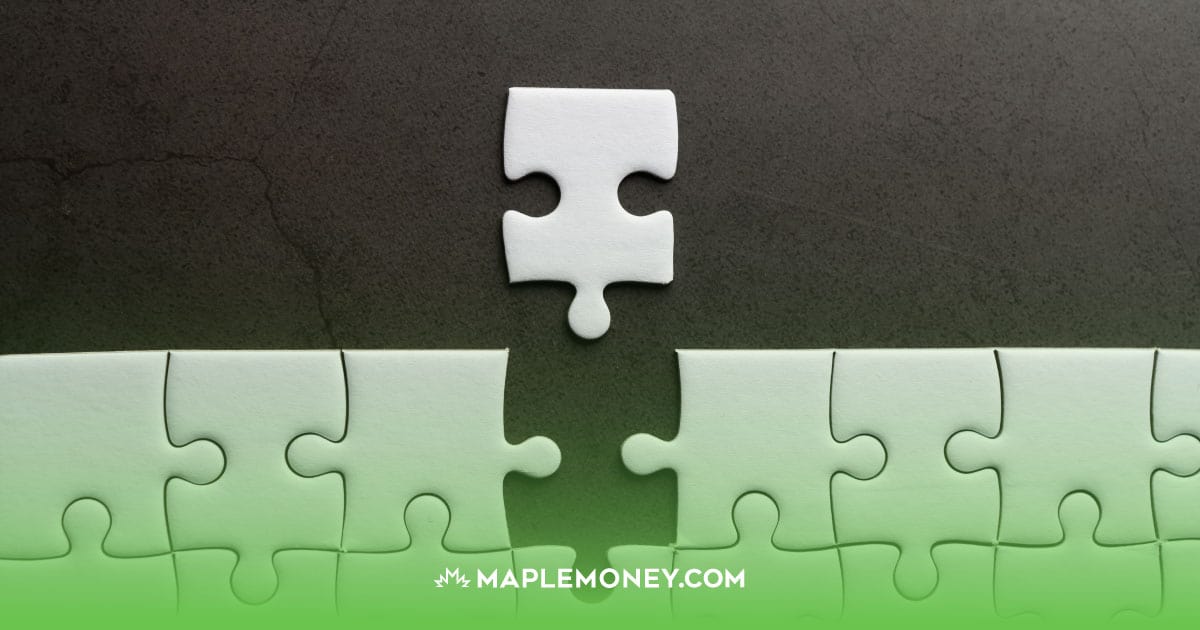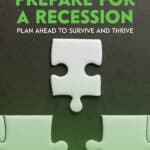How to Prepare for a Recession: Plan Ahead to Survive and Thrive

If you’ve listened to the news during the past year, you’ve no doubt heard the constant talk (some of it from me!) of an economic downturn and possible recession. But what exactly is a recession, and if it’s as serious as every news anchor, analyst, and pundit makes it sound, how can you prepare for a recession if it happens?
What Is a Recession?
A recession is a significant and prolonged slowdown in an economy. While there are different ways to measure whether an economy has entered a recession, it’s generally considered a period where economic growth (measured by GDP) has halted or declined for six straight months or two consecutive quarters.
GDP refers to Gross Domestic Product, which is the total value of final goods and services produced within a country during a specific period (quarterly or annual).
What Causes a Recession?
A recession is not usually caused by a single event but by a chain of negative events leading to a sustained decline in GDP. The following factors may contribute to a recession occurring:
- A financial crisis (e.g., the mortgage crisis of 2008, stock market crash)
- Sudden disruptions in the supply and demand of commodities
- A decline in consumer confidence due to a significant negative event (war, pandemic)
- A significant increase in interest rates
- A global trade war
Will There Be a Recession this Year?
While opinions vary on when and how deep a recession could be, there is a general consensus amongst many economists and bank analysts that Canada (and the U.S.) could enter a recession during the second half of 2023. At this point, no one knows how long a recession will last or how drastic it will be, but it’s something that every Canadian adult should be mindful of and take steps to protect their finances in case we do fall into a recession.
Tips for Preparing for a Recession
There are many things in life that are beyond any individual’s control, including the economy. And while I don’t believe anyone should live in fear of a recession, I believe it helps to be prepared. So, how can a person or family prepare for a slowdown in the economy? Here are five steps that I recommend you take.
-
Examine Your Financial Situation
Before you can begin to make changes to your finances, you need to know where you stand. Spend some time examining your current finances. This includes checking how much money you have in short-term savings and your debt levels, especially things like credit cards or other high-interest debt.
Ask yourself how long you could survive if you experienced a loss of income. What resources could you draw on? Are you currently overspending on discretionary items such as dining out, entertainment, and shopping? Are those things making it difficult to set money aside?
Try creating a budget to figure out if your cash flow is positive or negative. Are you getting ahead each month or falling behind? The better you understand your situation, the easier it will be to make any necessary changes.
-
Build Up Your Emergency Fund
If you don’t have extra money set aside in an emergency fund, it means you’re not well prepared to deal with unexpected expenses. Emergencies can include something small, like a minor car repair, or something as significant as a job loss.
If you don’t have emergency savings to cover such things, your only option is to go into debt, often high-interest credit card debt, or borrow from a friend or family member. In other words, without an emergency fund, you are financially vulnerable.
There is no right or wrong amount to save in an emergency fund. Ideally, you would be able to cover a total loss of income for several months.
If you were laid off during a recession, you may not be able to find suitable employment right away. You may have to wait several months, if not longer, depending on the job market.
If you have no emergency funds, start with a goal of saving $1000. If you have money set aside but aren’t comfortable with the amount, focus on boosting your savings as much as possible within the next few months.
Note: Your emergency fund should be held in low-risk savings accounts that you can access very quickly. Don’t use this money to invest in long-term stock market investments, and don’t have it locked up where you can’t get at it when you need it. Your best bet is to store your emergency fund in a high-interest savings account.
-
Pay Down High-Interest Debt
If you’re carrying a balance on a credit card, get serious about paying it off before a recession hits. Some people in the personal finance community would advise making debt payments before building an emergency fund, but I believe you should do both simultaneously. The only way to break the cycle of credit card debt is to have money available to cover unbudgeted expenses with cash instead of credit.
If you owe money on more than one credit card, you can either pay off the highest interest balance first or start by paying off the lowest balance before moving to the next-lowest balance card, and so on.
The first method is known as the debt avalanche and will save you more money in the long run. The second is called the debt snowball, and it focuses more on getting quick wins, which motivates you to keep going.
-
Reduce Your Discretionary Spending (if needed)
One common trigger of a recession is a reduction in consumer spending. The public, worried about the state of their finances, stops spending money on non-essential expenses. This, in turn, hurts corporate profits, resulting in layoffs and higher unemployment. It’s like a domino effect.
But as an individual, it’s not your job to continue spending money so the economy keeps rolling. You have to put yourself (and your family) first. If spending money on extras is preventing you from paying off credit card debt or having a proper emergency fund, now isn’t the time to finance that brand-new RV or fishing boat.
To prepare for a recession, consider deferring these types of purchases until you’re in a better financial situation and there’s more economic certainty.
-
Evaluate Your Employment Status and Career Options
No one wants to entertain the thought that their job might be at risk. Unfortunately, one of the downsides of a recession is that more people lose their jobs, and companies cut back on hiring.
Take a look at your current work situation. Do you feel like your job is safe? Some jobs are more recession-proof than others. If not, what can you do to strengthen your employment status? For example, you could start a side hustle and generate an additional income stream.
If you’re worried about your job security, now is the time to work on your resume, polish up your LinkedIn profile, and focus on networking with other people in your company or industry.
I’m not saying you should hit the panic button, but don’t sit there, doing nothing, either.
Final Thoughts
While it would be wonderful if the Canadian and U.S. economies avoided a full-blown recession in the months ahead, I think it’s wise to plan for the worst-case scenario. And if you follow the steps I outlined above and a recession doesn’t happen, you’ll be in a better financial position moving forward, and that’s a good thing.

